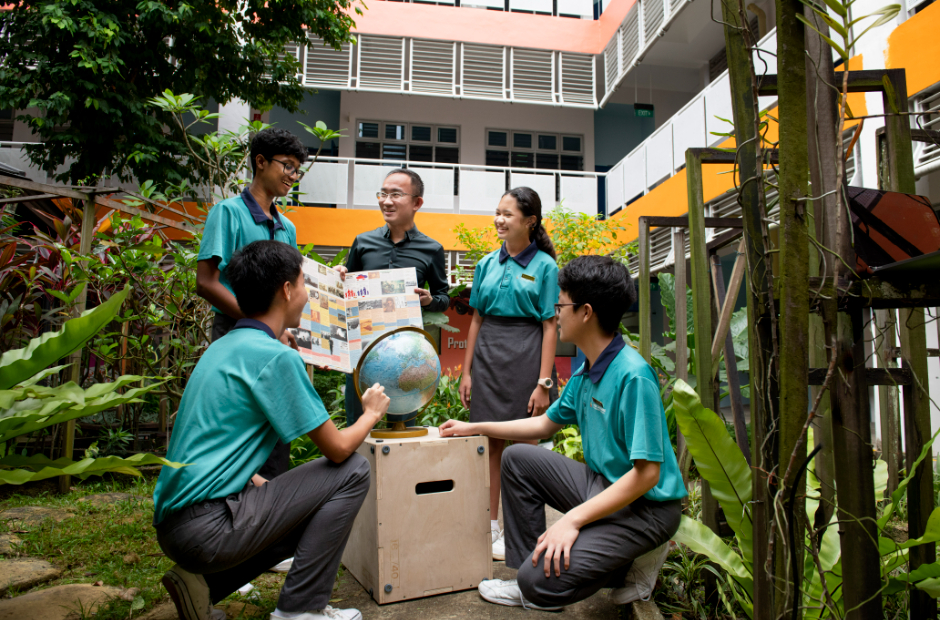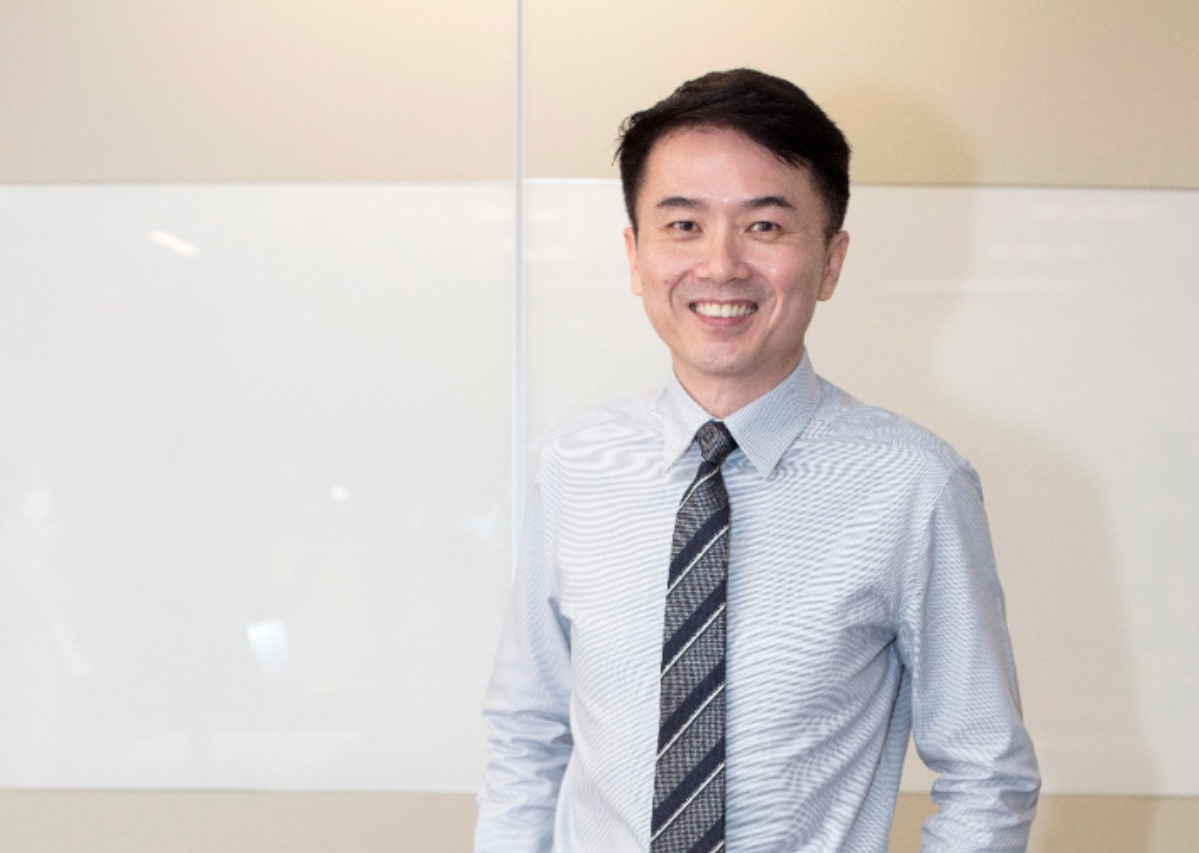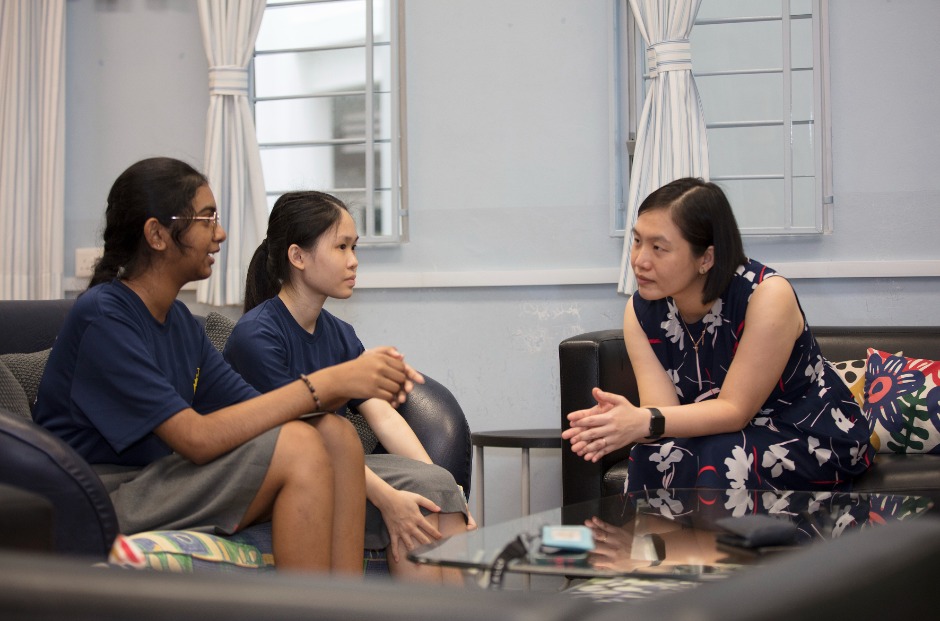For most adults who took History in school, the mention of history lessons might bring back dusty memories of rote learning on events long past. Students of Mr Melvin Chan, however, will have a different tale to tell.
The Senior Teacher (History) at Chua Chu Kang Secondary School, who has been teaching for 13 years, eschews textbook flipping.
He facilitates a student-led inquiry process during each lesson, where History is less a regurgitation of facts than a set of statements begging to be investigated.
In his classroom, students sit in a semicircle and put those statements to test. “Let’s say we are talking about British Singapore. I’ll first get everyone to contribute a question or comment about the chapter. If there are 40 students, I’ll have 40 responses,” he says of the active level of classroom participation.
There is no perspective too ludicrous to Mr Chan, because “every idea is improvable, every individual is valuable, and every inquiry is do-able”.
After categorising their responses, the most thought-provoking inquiries are selected for discussion. Through clever facilitation, students then build layers upon layers on one another’s ideas.
“Why didn’t opium dealers get caught in British Singapore? Did the Second World War start in 1941 after the attack on Pearl Harbor or in 1939 with the invasion of Poland?” These are some promising questions his students have tackled and examples of their critical thinking at work, Mr Chan recalls with pride.
Learning becomes a social activity
This technique of inquiry that Mr Chan practises is derived from Knowledge Building (KB), a theory first formed by Canadian researchers that is geared towards the co-creation of knowledge to advance intellectual development.
The passionate educator speaks fast and fervently, emphasising frequently that success — whether it is in acquiring knowledge or life skills — hinges on a supportive collective.
In KB, students build scaffolds for one another through respectful dialogue (rather than debate), asking clarifying questions and adding context to paint a fuller picture of the era in discussion. By holding space for everyone’s ideas to be heard and considered, even the least confident learners feel empowered to lend their voice to discussions.
“Someone might say life in Fascist Japan was bad. Another person might say it wasn’t that bad. Perhaps we can line events up chronologically and negotiate the differences,” explains Mr Chan, who learnt about the KB theory from a Science teacher.
“My hope is that when they graduate and walk out the gate, they will be confident and curious and remember to always be a part of a community.”
Mr Melvin Chan
One of his students used to keep to himself in a corner of the class, until he realised that his ideas could be heard and recognised by his peers.
“He became very active in class and realised that his suggestions could be further improved by his classmates. The idea is ‘I can learn something from everyone’ and vice versa,” he says.
The process gets easier with online tools such as Knowledge Forum. Starting with a topic, a blank canvas soon becomes an intricate web of ideas, questions, comments and new information all contributed by learners.
Building an international community to tap on
As the success of the technique hinges upon community support, Mr Chan decided to expand the size of the community. “Community starts with the classroom but it cannot end there,” he states. “We needed a network where we can come to learn together and for schools to connect.”
Mr Chan co-founded the Knowledge Building Community Singapore in 2017, which has about 100 members from across multiple disciplines, in Singapore and abroad. Its website lists the many case studies, papers and conferences that have germinated with their communal exchanges.
His students collaborate in the same spirit of building community. For example, they co-created newsletters on History with Clementi Town Secondary School and partnered a Canadian secondary school to refine six heritage walks around the Teck Whye district.
Just how much do students enjoy this form of learning? In 2017, 10 Secondary One students volunteered to share their experience of KB at the National Institute of Education’s Redesigning Pedagogy International Conference, attended by renowned educators from around the world.
Or, one could just walk by Mr Chan’s form class to witness KB in action. “The ideas never stop coming until the bell rings,” he laughs.

Getting the family involved in the students’ own history
For fellow teachers who have the slightest interest in prototyping KB for their subject, Mr Chan invites them to observe his classes, sit down to analyse the students’ work, and speak with any of the learners. “It’s best if they’re the ones advocating it,” he says.
While he has gone big in his efforts to promote KB, plug students into global networks and spark new projects and opportunities, he highlights a community that needs to be reached: family.
“This is the community we always neglect. Learning cannot exist without the home,” he says, his voice softening just a notch.
He wants his students to build fuller knowledge of themselves by hearing what their parents have to say about them. For parent-teacher meetings, the discussions go beyond the sharing of grades and performance.
Before sharing the students’ grades, he gives parents three questions to answer: What’s great about your child? What are you grateful for? What growth have you seen in your child?
When Mr Chan first tried this approach in 2019, his students were moved to tears. “They’d never heard their parents praise them in public,” he explains. His eyes watered at the memory.
“We need to rally as many people as possible around the student. Sometimes students may not find success in academic subjects, so they need to be able to taste success at home. Even something as simple as getting to school on time is a positive breakthrough.”
Even as he continues to champion KB, Mr Chan is aware that all these strategies are simply tools.
“Even memorising the textbook is a strategy, one that can help students score points during an exam, but we are looking at the long-term impact,” Mr Chan jests.
“Regardless of how we teach, it always has to come back to the impact we make on the students. My hope is that when they graduate and walk out the gate, they will be confident and curious and remember to always be a part of a community.”
We are on Telegram! Subscribe to our channel: https://t.me/schoolbag_edu_sg






